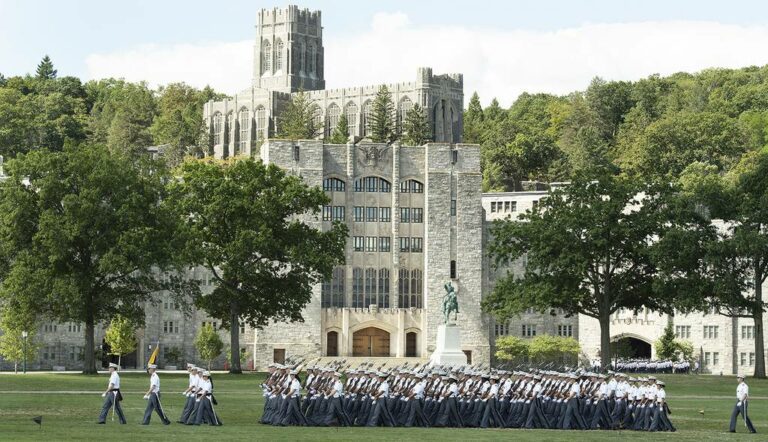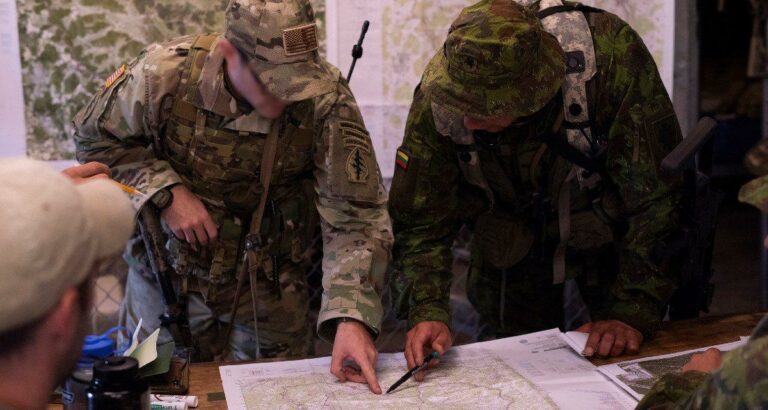Annie DeGraw
Strategic communications manager , Media Relations and Strategic Communications

Maximizing the potential of American irregular warfare in strategic competition
The United States lacks the concepts and associated doctrine for its irregular warfare capabilities to achieve their potential in strategic competition. This challenge was articulated in 2013 in a hallmark collaboration of Army Chief of Staff Raymond Odierno, Marine Corps Commandant James Amos, and U.S. Special Operations Commander William McRaven. Center to their critique was the observation that the Pentagon’s concept of competition…

Pentagon Prepares for Space Warfare as Potential Threats From China, Russia Grow
The Pentagon is gearing up for a future conflict in space as China and Russia deploy missiles and lasers that can take out satellites and disrupt military and civilian communications. The U.S. military long ago dropped the notion of crewed, orbiting space weapons in favor of satellites because the logistics of supporting people outside of Earth’s atmosphere…

The road to innovating competitive statecraft
The current strategic imperative for U.S. foreign policy is to develop a competitive statecraft, or the ability to integrate all elements and efforts of like-minded partners. A competitive statecraft would coordinate the advancement of partners’ national interests, overcome obstacles and capitalize on new opportunities as they emerge — in every part of the world. ASU…

Former U.S. Combatant Commanders Urge Congress to Strengthen Civilian National Security Toolkit
Washington D.C. – Today, 18 former military leaders – all of whom served at the highest levels of military service and commanded regional or special operations combatant commands across the world – sent a letter to Congress urging robust support for civilian national security tools – including the State Department, USAID, and other development agencies –…

Preparing for strategic competition: The need for irregular warfare professional military education
The Department of Defense (DOD) does not provide the irregular warfare (IW) professional military education necessary for success in competition and conflict in the 21st century. This is a not a new problem, but it is one that may deserve new attention from the Congress and the Pentagon. More than 30 years ago, the late Ambassador Michael Sheehan,…

Developing a mastery of irregular warfare
The U.S. military has failed to master irregular warfare above the tactical level. This is not a new problem, and it is one that has been recognized by leaders at the most senior echelons of government. Secretary of Defense Robert Gates stated this perhaps most clearly when he admonished the Department of Defense (DOD) in his 2008 National Defense…

Educating future US Army officers to fight and win
Why West Point’s academic program is essential to our national security Is the United States Army ready to succeed on the battlefields of tomorrow? Given the breakdown of the Russian invasion of Ukraine, this question is not just being debated in the halls of the Pentagon. The American public is also watching Russia’s military performance and…

REDEFINING IRREGULAR WARFARE: LEGITIMACY, COERCION, AND POWER
The Department of Defense is working on a new definition of irregular warfare, and the stakes are surprisingly high. The danger lies not just in forgetting whatever was learned from twenty years of engagement with substate actors through counterinsurgency and counterterrorism. Rather, in seeking to apply the term to state-based actors, the better to capture…

How AI Distorts Decision-Making and Makes Dictators More Dangerous
In policy circles, discussions about artificial intelligence invariably pit China against the United States in a race for technological supremacy. If the key resource is data, then China, with its billion-plus citizens and lax protections against state surveillance, seems destined to win. Kai-Fu Lee, a famous computer scientist, has claimed that data is the new…
